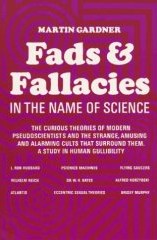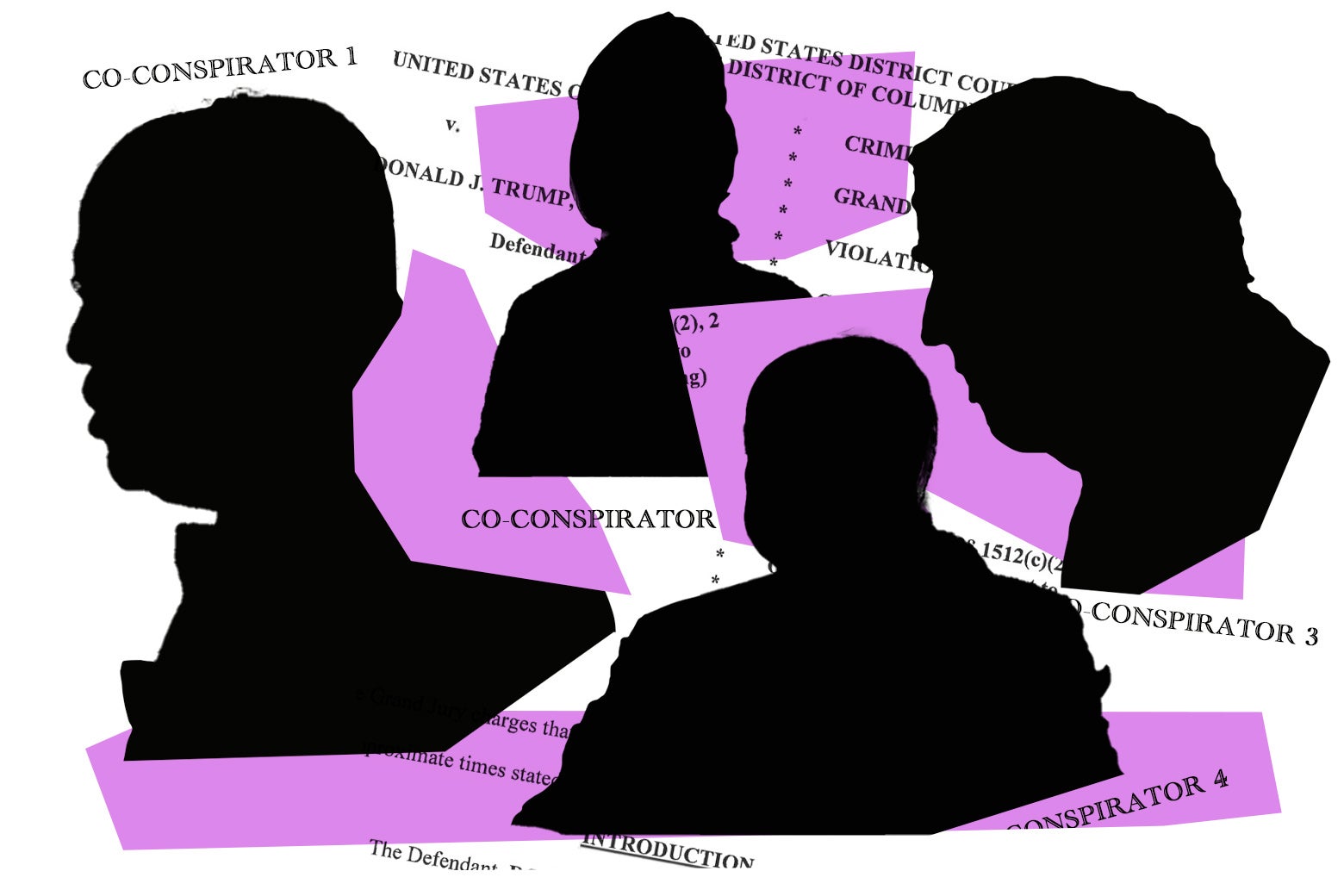- If Trump’s trial is on TV, will Americans, even his supporters, accept the outcome?;
- How traditional conspiracy theorists are alarmed by modern conspiracy theorists;
- Recalling Martin Gardner’s Fads and Fallacies in the Name of Science;
- And just noting a few other substantial articles.

NY Times, guest essay by Steven Brill, 5 Aug 2023: Americans Will Believe the Trump Verdict Only if They Can See It
He makes a good case for broadcasting or streaming the Trump trial (the main one), but my interest is his take on why people cannot agree on anything, even basic facts. The writer is the founder of Court TV (so you might say he has a vested interest in the primary topic).
The only issue that Americans on all sides of our vast political divide seem to agree on is that we cannot agree on anything. Even basic facts have become matters of opinion.
It is a fact, not an opinion, that Bill Gates did not mastermind a plot to embed microchips into Covid vaccines so that Americans could be tracked and their minds controlled. But polls indicate that about one-fifth of Americans believe the microchip conspiracy theory to be true or are unsure whether it is true.
It is a fact that Hunter Biden’s laptop is real, not part of a Russian disinformation campaign. But a poll taken nearly three months ago, long after The New York Times and others confirmed that the laptop was real, found that 41 percent of Americans, including 59 percent of Democrats, still did not believe it was.
In the work I do looking at the reliability of online news and information, I can see that the erosion of trust in basic facts is largely the result of too many people getting their news from social media platforms. What they see there may be highly opinionated, one-sided, boiled down to a few words or catchy phrases or taken out of context or come from people with undisclosed credentials or agendas or be just plain made up. And it’s all sorted out and presented by algorithms designed to engage people to spend more time on the platform by offering up content that will excite rather than inform and please them rather than challenge them, by reinforcing what they already believe.
He goes on with how trial juries work, and how many observers are impressed by our system once they see it, rather than…
The last thing our country and the world needs is for this trial to become the ultimate divisive spin game, in which each side roots for its team online and on the cable news networks as if cheering from the bleachers. Much of that would still happen, but imagine how a quiet and methodical but sure to be riveting presentation of both sides’ arguments — subject to the rules of evidence and decorum of a federal court, not the algorithms of Facebook and Twitter — might temper the national mood when a verdict is announced. At the least, it will make people more informed about what could be the single most important activity their government will conduct in their lifetimes.
The gist is indictment of social media and how most people acquire news through partisan sound bites, without actually reading much, or paying close attention.
\\
This is rich.

NY Times, Annie Kelly, 4 Aug 2023: Opinion: Even Conspiracy Theorists Are Alarmed by What They’ve Seen
It seems the “traditional” conspiracy theorists, the “Sept. 11 truthers, Kennedy assassination investigators and U.F.O. cover-up researchers,” are alarmed by the crazy theories about Jan. 6, QAnon, Satanic pedophile networks, and so on. Here’s a sample from the middle of the article. Again, social media is implicated. The “traditional” conspiracy theorists consider themselves scholars, apparently.
The belief that the incentives of social media had shorn conspiracy research of its serious, scholarly edge was a common theme for our interviewees. “The things that we’re describing are not really the same thing,” Mr. Green declared to me flatly, comparing the salacious videos of QAnon influencers with the archival work and conferences that he had been involved with. The scholarly work “is never going to have that commercial appeal,” he said. “You know, just like if I try to get somebody to watch a film by Ingmar Bergman, it’s much more difficult than to get them to watch a film by Michael Bay. It’s almost not even the same thing, right?”
\

This reminds me of one of the earliest books I read (in 1974) that clued me into the difference between science and pseudoscience. By Martin Gardner, a popular science writer and long-time Scientific American columnist. Called Fads and Fallacies in the Name of Science, 2nd edition 1957, which also has a Wikipedia page. The book considered a range of cults and crackpot theories that have virtually all disappeared since then, except what he then called “flying saucers.”
The point I’m getting to is that in Gardner’s preface to this second edition, he says this:
The first edition of this book prompted many curious letters from irate readers. The most violent letters came from the Reichians, furious because the book considered orgonomy alongside such (to them) outlandish cults as dianetics. Dianeticians, of course, felt the same about orgonomy. I heard from homeopaths who were insulted to find themselves in company with such frauds as osteopathy and chiropractic [sic], and one chiropractor in Kentucky “pitied” me because I had turned my spine on God’s greatest gift to suffering humanity. Several admirers of Dr. Bates favored me with letters so badly typed that I suspect the writers were in urgent need of strong spectacles. Oddly enough, most of these correspondents objected to one chapter only, thinking all the others excellent.
Actually there are two points. First, that proponents of one pseudoscience or conspiracy theory can dismiss all the *others* as crackpot ideas. As seems to be happening now, in a sense, in the NY Times article above. And second, that all those pseudosciences and the conspiracy theories to hide their truth, discussed by Martin Gardner some 65 (!) years ago have vanished (who was Dr. Bates? No idea), except maybe the “flying saucers,” later called UFOs and now UAPs.
The application of this observation to current events is left as an exercise for the reader.
\\
These look interesting and substantial, but perhaps they’re more of the same. I’ll note them without quotations or comments. Life is short.

Slate, Dahlia Lithwick and Mark Joseph Stern, 2 Aug 2023: Jack Smith’s Indictment of the Entire Legal Profession
AlterNet, 5 Aug 2023: Opinion | We’re watching the largest and most dangerous ‘cult’ in American history: neuroscientist
LA Times, Jonah Goldberg, 8 Aug 2023: Column: Trump’s indictment reflects the failures of our populist passions





